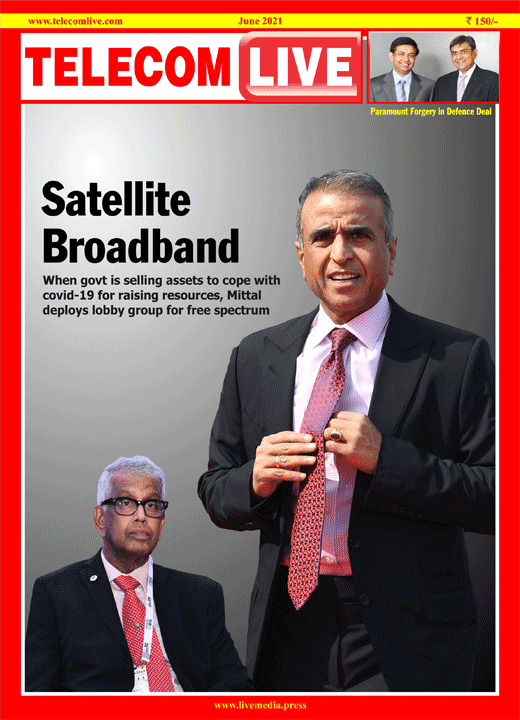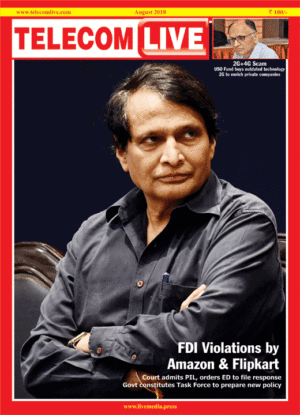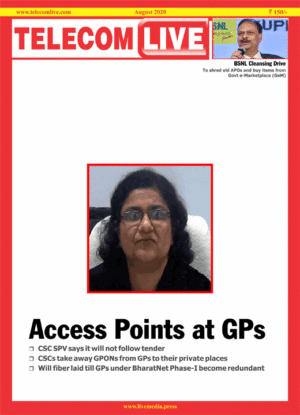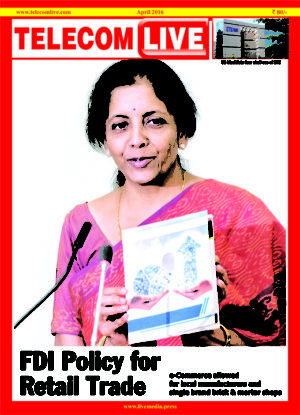‘Telecom in Space’ is a cleverly manipulated campaign to grab access spectrum for free and cause revenue loss to the government. Led by Airtel and beamed by its lobby cohort, Broadband India Forum (BIF), this spectrum is wanted for providing communication services through satellite networks. In this, they are joined by deep-pocketed foreign companies like US based Elon Musk’s SpaceX and Amazon’s Project Kuiper. The mega-satellite constellations, which are eyeing the high volume India data market, have also made it abundantly clear that their intent is to compete with the existing terrestrial 4G/5G services.
If the nature and scope the relevant spectrum is examined, both 5G and Space based communication technologies are now being developed in the same spectrum space and the specs of 5G Radio interface can connect directly to satellites. The technical aspects are detailed in our cover story, making it amply clear that spectrum deployed for providing satellite-based communication services is nothing but access spectrum, which is given only through auction.
But the free spectrum and high floor-tariff demanding lobby has given the issue several false spins and calls it backbone spectrum, between space and the landing station covering, a small area and hence cannot be auctioned. They need to be reminded that government intends to allot backbone spectrum for terrestrial telecom services also through auction route, terms & conditions for which are under finalisation; telcos have given undertakings for already allocated spectrum which will be subject to auction discovered price.
Who will be the users of these satellite based communication networks. Certainly not the remote and under connected. It will be the enterprise segment and the upper crusts of the retail customers for which there will be partnerships with mobile operators. The service will be hyper-expensive in all dimensions – phone set, rental and calling tariff. Does such commercial usage for elite consumption justify giving away access spectrum for free. DoT must call the bluff of these operators and state clearly that the spectrum they are eyeing is access spectrum and is not up for free grabs. Should it dither, it runs the risk of revenue loss as also disturbing the level playing field concerns of heavily invested networks which have brought benefits of affordable services to the farthest corners of our country. The government also faces a revenue challenge from Vodafone-Idea which wants deferment of spectrum dues of Rs 8,292 crore and has spuriously linked payment to its demand of a tariff hike.




